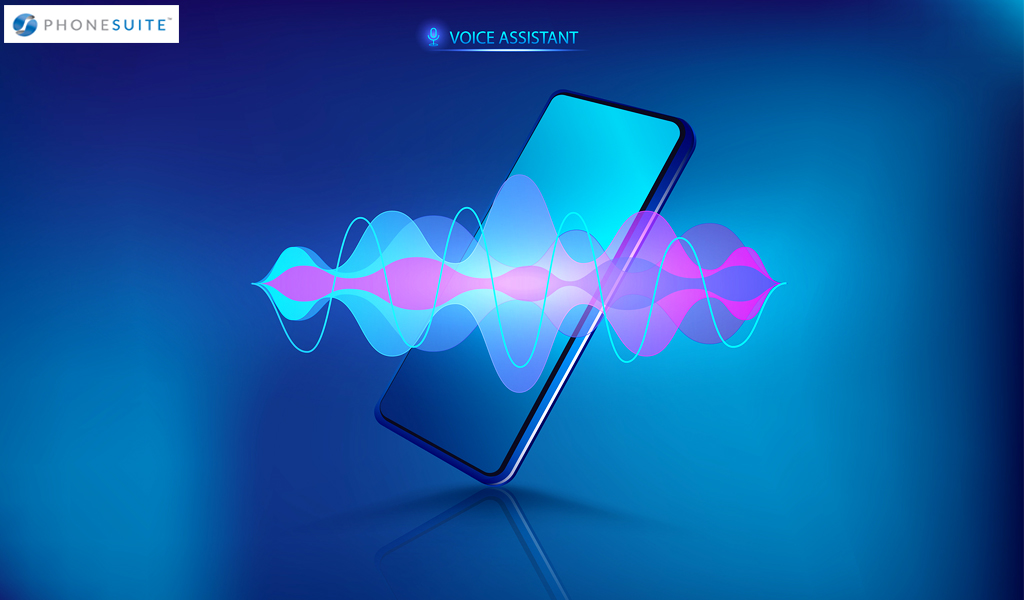Voice assistants have become a popular tool for households looking to streamline daily tasks, but have you considered how they can enhance the guest experience in your home? By programming your voice assistant with routines and information typically provided by hosts, such as Wi-Fi passwords, check-out procedures, and restaurant recommendations, your guests can feel right at home from the moment they enter your home. Additionally, voice assistants can offer weather updates, control the thermostat, and even play soothing music to create a cozy and comfortable atmosphere. These small touches can make a big difference and provide your guests with a memorable and welcoming stay.
How Voice Assistants Can Make Guests Feel Welcome in the hospitality industry?
Voice assistants can play a significant role in making guests feel welcome and enhancing their overall experience in the hospitality industry. When integrated effectively, these AI-powered assistants can provide a personalized and convenient stay for guests. Here’s how voice assistants can achieve this:
Personalized Greetings: Voice assistants can be programmed to greet guests by their names upon check-in, creating a warm and personal welcome experience. This simple touch can set a positive tone for their stay.
Room Control: Guests can use voice commands to control room amenities such as lights, thermostats, curtains, and even the TV. This level of control offers convenience and ensures that guests can easily customize their environment to their liking.
Concierge Services: Voice assistants can provide information on hotel services, amenities, and local attractions. Guests can inquire about restaurant recommendations, spa reservations, or request extra towels with a simple voice command.
In-Room Dining: Guests can place orders for room service or request menu recommendations through the voice assistant. This seamless process saves time and enhances the dining experience.
Entertainment: Voice assistants can assist in streaming content to the in-room TV or provide information about the available channels and shows. This feature keeps guests entertained and informed.
Language Translation: For international travelers, voice assistants can assist in language translation, helping guests communicate with staff and navigate unfamiliar surroundings more comfortably.
Check-Out Process: Guests can use voice commands to check out of their rooms, review their bill, and receive a digital receipt. This streamlined process eliminates the need for in-person check-out, saving time for guests.
Local Recommendations: Voice assistants can provide personalized recommendations for nearby restaurants, attractions, and events based on the guest’s preferences and interests.
Safety and Security: In case of emergencies, guests can use voice commands to contact hotel staff or request assistance. This enhances the sense of security and ensures prompt responses to any issues.
Feedback and Surveys: After their stay, guests can provide feedback or complete satisfaction surveys using voice commands. This real-time feedback can help the hotel address concerns promptly and improve the overall guest experience.
Accessibility: Voice assistants can cater to guests with disabilities by offering voice-controlled features, making it easier for them to navigate and control their environment.
Personalized Check-In Process: Hotels can send pre-arrival messages to guests with instructions on how to use the in-room voice assistant, allowing them to customize their preferences in advance.
Privacy Controls: Guests should have the option to easily disable the voice assistant or clear their voice command history for privacy and security reasons.
It’s important to note that while voice assistants can enhance the guest experience, they should be designed with privacy and security in mind. Guests must have confidence that their interactions with the voice assistant are secure and that their data is handled responsibly.
Benefits of Connecting Devices with Voice Assistants
Connecting devices with voice assistants offers numerous benefits, enhancing convenience, efficiency, and automation in both homes and businesses. Here are some of the key advantages:
Voice Control: The primary benefit is the ability to control a wide range of devices using natural language voice commands. This makes it easy for users to interact with and manage their smart devices without needing to learn complex interfaces or use physical controls.
Convenience: Voice control is incredibly convenient. Users can turn on lights, adjust thermostats, lock doors, play music, and perform various other tasks with a simple spoken command. This is especially helpful for individuals with mobility issues.
Hands-Free Operation: Voice control enables hands-free operation, which is invaluable in scenarios where users have their hands full or are otherwise occupied. For example, in the kitchen, one can adjust the oven temperature or set timers without touching anything.
Automation and Routines: Users can set up automation routines or “scenes” that trigger multiple actions with a single voice command. For example, saying “Good morning” can turn on lights, adjust the thermostat, and provide a news briefing.
Entertainment: Voice assistants can play music, audiobooks, podcasts, and even control home theater systems. Users can request specific songs or playlists without having to manually navigate menus.
Voice Search and Information: Users can ask voice assistants for information, weather updates, news headlines, sports scores, and more, providing a convenient way to stay informed.
Hands-Free Calls: Voice assistants facilitate hands-free calling and messaging. Users can make calls, send texts, or even initiate video calls without picking up a phone.
Home Security: Voice assistants can integrate with security systems, allowing users to arm or disarm alarms, check security camera feeds, and receive alerts about unusual activities.
Health and Wellness: In healthcare, voice assistants can be used to monitor and manage health-related tasks, such as setting medication reminders or tracking fitness goals.
Learning and Education: Voice assistants can assist with learning and education by answering questions, providing explanations, and offering language translation services.
While the benefits of connecting devices with voice assistants are significant, it’s essential to consider privacy and security. Users should be aware of how their data is handled and take steps to secure their voice assistant devices to protect their privacy.
Leveraging IoT Technologies for Guest Engagement and Service Delivery
Leveraging Internet of Things (IoT) technologies for guest engagement and service delivery in the hospitality industry can enhance the overall guest experience and streamline operations. Here are ways in which IoT can be used effectively in this context:
-
Keyless Entry:
IoT-enabled door locks can provide keyless entry through smartphone apps, reducing the need for physical keys or key cards and enhancing security.
-
Guest Preferences and Profiles:
IoT systems can store and retrieve guest preferences, such as room temperature, lighting, and wake-up times, to provide a more personalized experience during return visits.
-
Maintenance and Housekeeping:
IoT sensors can detect issues like leaks or malfunctioning equipment, allowing for proactive maintenance. Housekeeping staff can receive real-time updates on room occupancy, reducing wait times for guests.
-
Asset Tracking:
Hotels can use IoT to track the location and status of assets such as luggage carts or room service trays, improving operational efficiency.
-
Contactless Payments:
IoT-enabled payment systems can facilitate contactless check-out and payments, reducing the need for physical interactions at the front desk.
-
Local Recommendations:
IoT can provide guests with personalized recommendations for nearby restaurants, attractions, and events based on their preferences and interests.
To successfully leverage IoT for guest engagement and service delivery, hotels must prioritize data privacy and security. Guest data must be protected, and strict access controls should be in place to prevent unauthorized access to IoT systems. Regular maintenance and updates of IoT devices and networks are also essential to ensure reliability and security. When implemented thoughtfully, IoT can contribute to improved guest satisfaction and operational efficiency in the hospitality industry.
Developing Strategies to Enhance Experiences with Automation & AI
Enhancing experiences with automation and AI requires careful planning and strategic implementation. Here are some strategies to develop a framework for leveraging these technologies effectively:
Understand User Needs and Expectations:
- Begin by conducting user research and understanding the specific needs and expectations of your target audience. Identify pain points and areas where automation and AI can add value.
Start Small and Scale:
- Begin with pilot projects or smaller-scale implementations to test the waters and gather feedback. Once you have a proven concept, scale up your automation and AI efforts accordingly.
Automation of Repetitive Tasks:
- Identify repetitive and time-consuming tasks within your organization and automate them using AI-driven processes. This can free up human resources for more value-added activities.
A/B Testing and Optimization:
- Continuously test and optimize your automation and AI solutions. Use A/B testing to compare the performance of AI-driven features against traditional methods.
Human-AI Collaboration:
- Promote collaboration between AI systems and human staff. AI can handle routine tasks, while humans can focus on complex problem-solving and creativity.
Monitoring and Maintenance:
- Implement robust monitoring systems to track the performance of automation and AI systems. Regularly maintain and update these systems to ensure they remain effective.
Collaborate with Experts:
- Consider collaborating with AI and automation experts, either through partnerships or hiring, to ensure the successful development and deployment of these technologies.
Remember that the key to enhancing experiences with automation and AI is to align these technologies with your organization’s goals and your users’ needs. Regularly assess the impact of your strategies, iterate based on feedback, and stay up-to-date with advancements in AI and automation to remain competitive and provide exceptional user experiences.
Analyzing How Voice Assistants & IoT Can Help Improve Operation & Maximize Profits
Voice assistants and the Internet of Things (IoT) can significantly improve operations and maximize profits for businesses across various industries. Here’s an analysis of how these technologies can be leveraged effectively:
Inventory Management:
Inventory Optimization: IoT sensors can track inventory levels in real time, ensuring that businesses have the right amount of stock. This prevents overstocking or understocking, reducing carrying costs and lost sales due to stockouts.
Remote Monitoring and Management:
Remote Operations: IoT allows businesses to remotely monitor and manage equipment and facilities. This is especially valuable in industries like agriculture, where sensors can monitor crop conditions and automate irrigation.
Revenue Generation:
New Business Models: IoT and voice assistants can enable new revenue streams through subscription services, data monetization, or value-added features. For instance, connected car services can offer in-car entertainment and personalized recommendations for a fee.
Investment and ROI Assessment:
Conduct a thorough cost-benefit analysis to evaluate the investment required in adopting these technologies. Consider factors such as hardware, software, maintenance, and training costs. Assess the expected return on investment (ROI) and payback period.
Ecosystem Partnerships:
Collaborate with ecosystem partners, including IoT device manufacturers and voice assistant platforms, to access a broader range of capabilities and services. Integration with third-party services can expand the value proposition for users.
Sustainability and Green Initiatives:
Leverage IoT for sustainability efforts. Monitor energy consumption, reduce waste, and implement environmentally friendly practices. This not only aligns with corporate social responsibility but can also lead to cost savings.
The successful integration of voice assistants and IoT technologies can yield substantial operational improvements and profit maximization. However, businesses should approach these implementations with a strategic mindset, considering security, scalability, compliance, and the evolving needs of both customers and the organization. By doing so, businesses can unlock the full potential of these technologies while mitigating potential risks.
Partner With PhoneSuite Today!
PhoneSuite’s Voiceware products and services offer the perfect solution for business owners looking to stay connected and up to date. With their expansive knowledge of the communication industry, PhoneSuite has the resources and abilities to help you accomplish whatever your needs may be. At PhoneSuite, success doesn’t come in a package, but by offering level-headed customer service and personalized attention. People are more than just employees at PhoneSuite, they’re a family working together to make sure every customer reaches their full potential. With their commitment to excellence, you can trust that your business will be in good hands when you invest in PhoneSuite solutions. Partner with PhoneSuite today to take control of your hospitality business and unlock its full potential.





